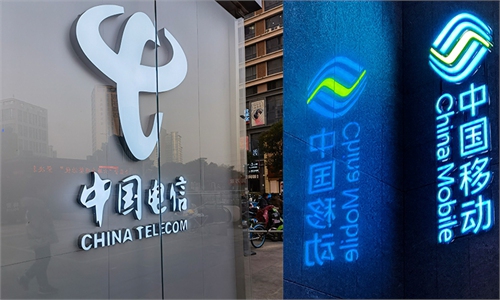China slams US industrial subsidies, export controls that ‘may violate WTO rules’
Washington’s policies disrupt global trade, threaten world economy

Photo taken on July 15, 2020 shows the exterior view of the World Trade Organization (WTO) headquarters in Geneva, Switzerland. photo: Xinhua
The US' discriminatory and distorted industrial subsidy provisions in its Inflation Reduction Act as well as policies that have disrupted global semiconductor industrial and supply chains are suspected of violating WTO rules and have led to serious distortions to global trade and investment in relevant sectors, Chinese representatives said at a meeting of the WTO, the Xinhua News Agency reported on Sunday.
While Chinese officials have long repeatedly slammed US actions that violate WTO rules and disrupt global industrial and value chains, the latest criticism made at a closely watched meeting of the WTO in Switzerland is particularly significant, as many other WTO members have also stepped up their pushback against the US policies.
The Chinese side reiterated that these discriminatory provisions are suspected of violating the WTO principles of most-favored-nation treatment and national treatment as well as the WTO's ban on import substitution subsidies and trade-related investment restrictions, and have led to serious distortions in relevant sectors' trade and investment globally, Xinhua reported.
"While the US repeatedly accuses other economies of distorting WTO rules, the US moves of granting subsidies and imposing export controls violate the rules of the WTO, whose core is open and non-discriminatory trade," He Weiwen, an executive council member of the China Society for World Trade Organization Studies, told the Global Times on Sunday.
US President Joe Biden signed the Inflation Reduction Act into law in August. It is expected to provide up to $369 billion in subsidies to support manufacturing and investment in electric vehicles (EV), key minerals, clean energy and power generation facilities, granting nine tax credits on the condition of final assembly in the US or North America.
"The act is a typical example of the US' attempts to wreck the rules-based international trade order by putting its domestic law above international law and sticking to the 'America First' policy. China is not the only country being affected by US legislation that violates WTO rules, other economies, such as the EU and South Korea are also discriminated against through these violations, meaning their industrial security is under threat as well," Li Yong, senior fellow at the China Association of International Trade, told the Global Times on Sunday.
At the WTO meeting, the Swiss delegation agreed with the Chinese representatives' review. Trade policies play an important role in the treatment of global climate change and Switzerland expresses concern over the US' discriminatory behavior against other WTO members' products, said Switzerland's representatives, stressing that trade-related policies must be non-discriminatory and consistent with WTO rules, according to Xinhua.
Ever since it became law in the US, the Inflation Reduction Act has caused widespread concern and criticism from governments and industrial communities around the world, including its allies in Europe and Asia.
Yonhap News Agency reported on November 17 that six major South Korean business lobbies have urged the US to revise the act on EVs in a way that doesn't discriminate against South Korean automakers and battery producers, as they fear South Korean companies could lose ground in the US without equal subsidies.
In addition to the sweeping Inflation Reduction Act, the US also sought to maintain technological hegemony and suppress competitors by signing the CHIPS and Science Act into law, announcing semiconductor export restrictions on China and constantly stepping up crackdowns on Chinese tech firms.
On Friday (US time), the US Federal Communications Commission (FCC) banned five Chinese firms, including Huawei, ZTE and Hytera Communications, from selling communications equipment in the US, citing the catch-all excuse of "national security."
The US not only overstretches the concept of national security and abuses export restrictions, but it also engages in long-arm jurisdiction to force other WTO members to follow its policies, pushing unilateralism to its utmost. Its move seriously violates the principle of sovereignty under international law and is typical of hegemony and a cold war mentality, Xinhua reported.
The Chinese side said the US measures would result in a decoupled and broken global semiconductor industrial chain as well as long-term harm to global trade and economic growth.
It takes more than 1,000 processes and 70 instances of cross-border cooperation for a chip to reach its end-users, Li said, noting that the intricate yet balanced global supply chain, formed through decades of international collaboration, benefits all parties involved.
"However, the US' selfish move will harm the professional division of labor, countries and companies will be unable to give full play to their comparative advantages, and manufacturing costs will rise accordingly," he said.
The Chinese side urges the US to comply with WTO rules, remove the discriminatory and distorted content in the act, and earnestly carry out the G20 Bali Leaders' Declaration, which stresses that trade and climate and environmental policies should be mutually supportive and WTO-consistent, Xinhua reported.
The WTO now faces its biggest crisis over the past 70 years because of the selfish US policies, He said, calling on WTO members to join hands to resist the US' political mistakes, for example, by lodging appeals to the WTO.


